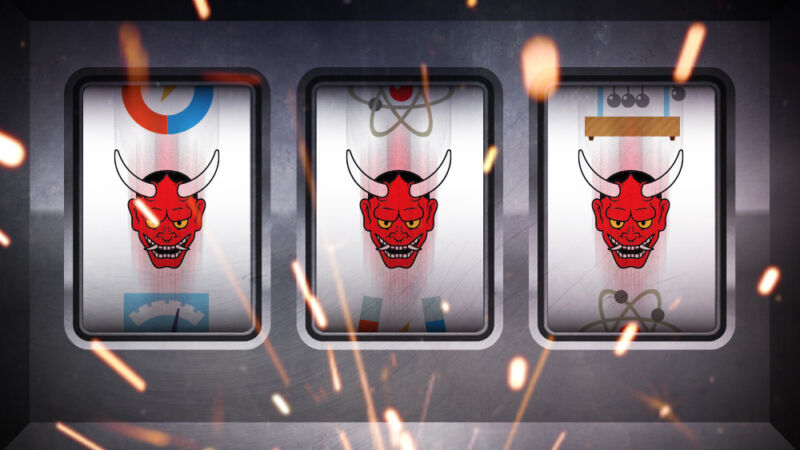
Enlarge / In a new version of the classic 19th century thought experiment, Maxwell’s demon plays the role of a gambler who knows when to quit while it's ahead. (credit: Aurich Lawson / Getty Images)
Entropy (aka the second law of thermodynamics) is a harsh mistress. If you think of the universe as a cosmic casino, the laws of thermodynamics amount to the house edge: you can't win, you can't break even, and—barring opening a portal to an alternate universe with different physical laws—you can't get out of the game. You just have to keep playing, and hopefully come up with successful strategies to minimize your losses as much as possible—and maybe even come out ahead occasionally, at least in the short term.
That's the essence of a new paper published in the journal Physical Review Letters, updating a classic 19th century thought experiment known as Maxwell's demon, which provides a potential loophole to subvert the second law—at least temporarily. Now physicists have proposed a gambling version of the demon playing a slot machine, unable to control when the machine pays out (in terms of free energy available for work), but able to choose when to stop playing to maximize its "winnings." The research might one day lead to improved efficiency of microscopic heat engines and motors.
As we've reported previously, around 1870, James Clerk Maxwell envisioned a tiny imp capable of creating order out of disorder in a closed container filled with gas. The imp accomplished this by making heat flow from a cold compartment to a hot one in apparent violation of the second law. The two compartments would be separated by a wall with a shutter covering a pinhole just large enough for a gas molecule to pass through.
No comments:
Post a Comment